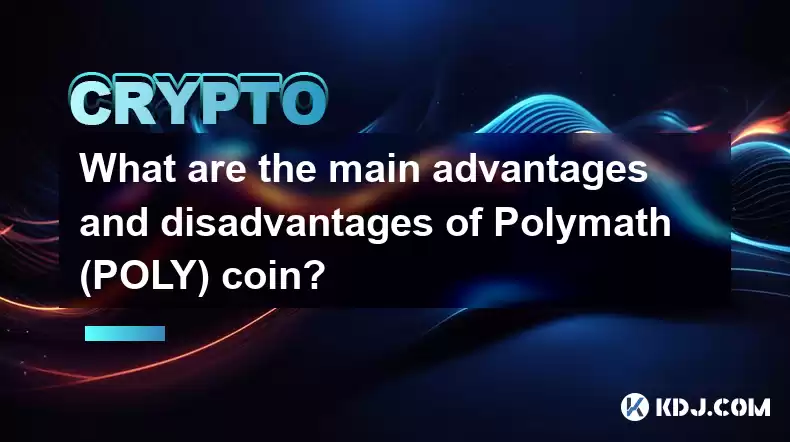-
 Bitcoin
Bitcoin $119900
0.94% -
 Ethereum
Ethereum $4633
9.35% -
 XRP
XRP $3.254
3.60% -
 Tether USDt
Tether USDt $0.9998
-0.04% -
 BNB
BNB $837.0
3.48% -
 Solana
Solana $194.3
10.87% -
 USDC
USDC $0.9998
-0.02% -
 Dogecoin
Dogecoin $0.2370
5.91% -
 TRON
TRON $0.3528
1.79% -
 Cardano
Cardano $0.8460
9.05% -
 Chainlink
Chainlink $23.61
12.06% -
 Hyperliquid
Hyperliquid $44.91
3.99% -
 Stellar
Stellar $0.4475
2.93% -
 Sui
Sui $3.899
5.78% -
 Bitcoin Cash
Bitcoin Cash $620.7
6.74% -
 Hedera
Hedera $0.2602
4.59% -
 Ethena USDe
Ethena USDe $1.000
-0.03% -
 Avalanche
Avalanche $24.84
8.52% -
 Litecoin
Litecoin $131.0
9.17% -
 Toncoin
Toncoin $3.509
3.47% -
 UNUS SED LEO
UNUS SED LEO $9.170
2.15% -
 Shiba Inu
Shiba Inu $0.00001360
4.82% -
 Uniswap
Uniswap $11.66
5.28% -
 Polkadot
Polkadot $4.180
7.93% -
 Ethena
Ethena $0.8242
2.31% -
 Dai
Dai $0.9998
-0.04% -
 Cronos
Cronos $0.1630
-3.04% -
 Pepe
Pepe $0.00001224
9.07% -
 Bitget Token
Bitget Token $4.464
1.16% -
 Aave
Aave $321.9
9.17%
What are the main advantages and disadvantages of Polymath (POLY) coin?
Polymath's decentralized platform, built on blockchain technology, provides businesses with increased access to capital markets and offers investors enhanced liquidity while ensuring regulatory compliance.
Dec 25, 2024 at 07:59 pm

Key Points
- Decentralization and transparency: Polymath utilizes blockchain technology to create a decentralized platform for issuing and managing security tokens, which offers several advantages over traditional financial systems.
- Increased accessibility: Polymath's platform enables a wide range of businesses to access capital markets, including startups, small businesses, and real estate projects, by facilitating the creation and trading of security tokens.
- Enhanced liquidity: Security tokens issued on the Polymath platform are expected to have higher liquidity than traditional securities due to the global nature of the blockchain and the possibility of fractional ownership.
- Regulatory compliance: Polymath's platform is designed to comply with existing securities regulations, ensuring that security tokens are issued and traded in a compliant manner.
- Potential risks: Polymath, like any other cryptocurrency, is subject to market volatility and other risks associated with digital assets.
Main Advantages of Polymath (POLY) Coin
Decentralization and Transparency
Polymath utilizes blockchain technology to create a decentralized platform for issuing and managing security tokens. This means that the platform is not controlled by any single entity, and all transactions are recorded on a public ledger.
This provides several advantages over traditional financial systems, including:
- Increased security: The decentralized nature of the blockchain makes it extremely resistant to hacking and fraud.
- Transparency: All transactions on the Polymath platform are recorded on a public ledger, which provides a high level of transparency and accountability.
- Immutability: Once a transaction is recorded on the blockchain, it is immutable, meaning that it cannot be altered or reversed.
Increased Accessibility
Polymath's platform enables a wide range of businesses to access capital markets. This includes:
- Startups: Startups can use Polymath to raise capital from a global pool of investors.
- Small businesses: Small businesses can use Polymath to access financing without the need for traditional bank loans.
- Real estate projects: Real estate projects can use Polymath to tokenize their assets and offer fractional ownership to investors.
By providing businesses with an alternative to traditional capital markets, Polymath helps to increase accessibility and foster innovation.
Enhanced Liquidity
Security tokens issued on the Polymath platform are expected to have higher liquidity than traditional securities due to:
- Global nature of the blockchain: The blockchain is a global network, which means that security tokens can be traded by investors from all over the world.
- Possibility of fractional ownership: Security tokens can be divided into smaller denominations, making them more affordable and accessible to a wider range of investors.
This increased liquidity provides several benefits to investors, including:
- Easier to buy and sell security tokens: Investors can quickly and easily buy and sell security tokens on the Polymath platform.
- Reduced spreads: The increased liquidity leads to narrower spreads between the bid and ask prices, which reduces transaction costs for investors.
- Improved price discovery: The increased liquidity helps to improve price discovery, which results in more accurate prices for security tokens.
Regulatory Compliance
Polymath's platform is designed to comply with existing securities regulations. This ensures that security tokens are issued and traded in a compliant manner. The platform includes features such as:
- Know-your-customer (KYC) and anti-money laundering (AML) checks: Polymath requires investors to undergo KYC and AML checks before they can trade security tokens on the platform.
- Smart contract templates: Polymath provides smart contract templates that ensure that security tokens are issued in compliance with applicable regulations.
- Regulatory partnerships: Polymath has partnered with several regulators to ensure that its platform complies with local laws and regulations.
By adhering to regulatory requirements, Polymath helps to build trust and confidence in the security token market.
Potential Risks of Polymath (POLY) Coin
Like any other cryptocurrency, Polymath is subject to market volatility and other risks associated with digital assets. These risks include:
- Price volatility: The price of Polymath can fluctuate significantly, which means that investors could lose money if the price drops.
- Security risks: Polymath is a decentralized platform, which means that it is not immune to hacking and other security risks. Investors should take steps to protect their assets, such as storing their tokens in a hardware wallet.
- Regulatory risks: The regulatory landscape surrounding security tokens is still evolving. If regulations change, it could have a negative impact on the value of Polymath tokens.
Investors should carefully consider these risks before investing in Polymath.
FAQs
What is Polymath (POLY)?
Polymath is a decentralized platform for issuing and managing security tokens. Security tokens are digital assets that represent ownership in a company or other asset. Polymath's platform enables businesses to raise capital by issuing security tokens, and investors to trade security tokens in a compliant manner.
What are the benefits of using Polymath (POLY)?
The benefits of using Polymath include:
- Decentralization and transparency
- Increased accessibility
- Enhanced liquidity
- Regulatory compliance
What are the risks of using Polymath (POLY)?
The risks of using Polymath include:
- Price volatility
- Security risks
- Regulatory risks
Disclaimer:info@kdj.com
The information provided is not trading advice. kdj.com does not assume any responsibility for any investments made based on the information provided in this article. Cryptocurrencies are highly volatile and it is highly recommended that you invest with caution after thorough research!
If you believe that the content used on this website infringes your copyright, please contact us immediately (info@kdj.com) and we will delete it promptly.
- Unich's OTC Exchange: Surging with $1.2B Volume – What's the Hype?
- 2025-08-13 02:50:11
- MoonBull's Explosive Moves: Your Crypto Whitelist Ticket to Ride!
- 2025-08-13 02:30:11
- MAGACOIN Finance: Don't Miss the Presale Bonus!
- 2025-08-13 02:30:11
- Trump's Crypto Kingdom: $2.4 Billion and Counting
- 2025-08-13 02:50:11
- Solana, LSTs, and SEC Approval: A New Dawn for Crypto?
- 2025-08-13 02:55:12
- Bitcoin's Profit Surge: Unpacking the BTC Value Boom
- 2025-08-13 02:55:12
Related knowledge

How to purchase Aragon (ANT)?
Aug 09,2025 at 11:56pm
Understanding Aragon (ANT) and Its PurposeAragon (ANT) is a decentralized governance token that powers the Aragon Network, a platform built on the Eth...

Where to trade Band Protocol (BAND)?
Aug 10,2025 at 11:36pm
Understanding the Role of Private Keys in Cryptocurrency WalletsIn the world of cryptocurrency, a private key is one of the most critical components o...

What is the most secure way to buy Ocean Protocol (OCEAN)?
Aug 10,2025 at 01:01pm
Understanding Ocean Protocol (OCEAN) and Its EcosystemOcean Protocol (OCEAN) is a decentralized data exchange platform built on blockchain technology,...

How to invest in Kyber Network Crystal v2 (KNC)?
Aug 12,2025 at 05:21pm
Understanding Kyber Network Crystal v2 (KNC)Kyber Network is a decentralized liquidity hub built on the Ethereum blockchain that enables instant token...

Where can I buy UMA (UMA)?
Aug 07,2025 at 06:42pm
Understanding UMA and Its Role in Decentralized FinanceUMA (Universal Market Access) is an Ethereum-based decentralized finance (DeFi) protocol design...

What exchanges offer Gnosis (GNO)?
Aug 12,2025 at 12:42pm
Overview of Gnosis (GNO) and Its Role in the Crypto EcosystemGnosis (GNO) is a decentralized prediction market platform built on the Ethereum blockcha...

How to purchase Aragon (ANT)?
Aug 09,2025 at 11:56pm
Understanding Aragon (ANT) and Its PurposeAragon (ANT) is a decentralized governance token that powers the Aragon Network, a platform built on the Eth...

Where to trade Band Protocol (BAND)?
Aug 10,2025 at 11:36pm
Understanding the Role of Private Keys in Cryptocurrency WalletsIn the world of cryptocurrency, a private key is one of the most critical components o...

What is the most secure way to buy Ocean Protocol (OCEAN)?
Aug 10,2025 at 01:01pm
Understanding Ocean Protocol (OCEAN) and Its EcosystemOcean Protocol (OCEAN) is a decentralized data exchange platform built on blockchain technology,...

How to invest in Kyber Network Crystal v2 (KNC)?
Aug 12,2025 at 05:21pm
Understanding Kyber Network Crystal v2 (KNC)Kyber Network is a decentralized liquidity hub built on the Ethereum blockchain that enables instant token...

Where can I buy UMA (UMA)?
Aug 07,2025 at 06:42pm
Understanding UMA and Its Role in Decentralized FinanceUMA (Universal Market Access) is an Ethereum-based decentralized finance (DeFi) protocol design...

What exchanges offer Gnosis (GNO)?
Aug 12,2025 at 12:42pm
Overview of Gnosis (GNO) and Its Role in the Crypto EcosystemGnosis (GNO) is a decentralized prediction market platform built on the Ethereum blockcha...
See all articles

























































































